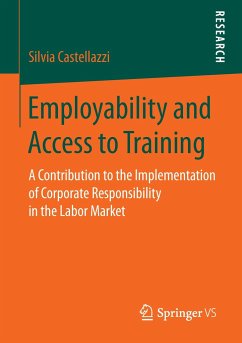Silvia Castellazzi shows how companies can implement their corporate responsibility and support employability and access to training in an incentive-compatible manner. The study provides insights into unrealized cooperation and disincentives which prevent companies from investing in a shared pool of employable and skilled people. The research draws on the theoretical framework of the economic ethics and on in-depth interviews with key stakeholders in two European countries. Findings show that incentives for investments in training are selective and might reinforce path-dependencies and exclusion, while not supporting cooperation and productive competition. The study also shows the value of conceptualizing employability as a social rather than a psychological contract to facilitate investments and the implementation of corporate responsibility.








